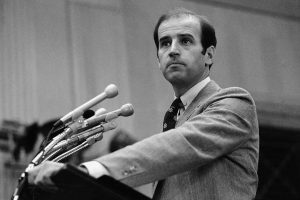On Dec. 2, Johnathan Hart and two other homeless men entered a Walgreens, where the man who shot Hart, Donald Vincent Ciota II, claims the three were in the middle of robbing the store. When Hart attempted to turn and run out the store during the incident, Ciota shot him in the back of the neck and Hart would die later in the hospital. Ciota has been charged with murder and if found guilty, will face up to 50 years to life in prison. Now Ciota’s lawyer claims his client was just defending the store and it’s customers. Ok, let’s imagine the store was being robbed by the three men. Ciota claims one of the other men struck him in the face and then he shoots the guy trying to run away? that just doesn’t add up in my head. I could never seriously find a good reason for shooting someone above the waist with their back turned and they’re running away. This was a cowardly and malicious murder. What I wanted to ask from commentators is how do we solve a national issue like authority figures shooting unarmed black people when the shootings are on the fault of the individual? I guess what i’m trying to say is that clearly not all cops are going to fatally shoot a black person, so how do we find the people who have prejudice?
First Black Speaker of the House
For the first time in American history we potentially may have an African-American speaker of the House. In 230 years total, there haven’t been any that have even come close in the runnings for the position. Current speaker, also known as a minority leader, Nancy Pelosi, said that she will run again, but many lawmakers and Democratic candidates want someone new in after 16 years. The most likely to succeed Nancy Pelosi consist of five candidates: Representative Jim Clyburn of South Carolina (currently the No. 3 House Democrat); Hakeem Jeffries of New York; Cedric Richmond of Louisiana (current chairman of the CBC); Elijah Cummings of Maryland; and Marcia Fudge of Ohio.
Marcia Fudge said that she believes that is it more than likely that the speaker of the House will be black, saying that “it’s a probability” rather than a possibility. She strongly backs Jim Clyburn for the position. Any of these candidates would mark as an important milestone in history, as no African-American has held a position higher than majority whip (No. 3 position) within the House. Giving a black lawmaker the top job of the House, would also be an important milestone in that it would put an African-American democrat in line to presidency succession with only the vice president in between.
This accomplishment would also give benefits to Democrats in that having a Democratic speaker of the House during current times, would give the speaker a position to take on President Donald Trump. Trump, has openly stoked racial divides within the country.
Rare Police Murder Conviction
In Minnesota, for the first time, a police officer was convicted of murder from an on-duty killing. The jury found Mohamed Noor, a Somali and Muslim police officer, guilty of the murder of Justine Ruszczyk, a white woman. This is controversial in that police officers tend to get away with murder, causing the national debate around policing and race. In Minnesota more specifically, local activists fought for a change due to the high amount of police officers not being held accountable for the murder of black civilians. This raised controversy within the community, many believed that yes, Officer Noor should be held accountable for the murder he committed, which he was. While on the other hand, many wonder if he would have been convicted of this if the race between officer and victim were swapped.
Civil Rights lawyer and activist, Nekima Levy Armstrong said, “The system treats African-Americans and white people differently, whether they are the victim in a police-involved shooting case or whether they are the police officer. This is absolutely outrageous.” This case was different than the cases where white officers murder black civilians in that, the system was quick to sympathize and embrace Ms. Ruszczyk, while Officer Noor seemed to not receive the same vocal support of the policing force as other officers did in the other police-relating shootings. Legal action against fatal police shootings is extraordinarily rare, with only 101 non federal officers being charged with murder/manslaughter since 2005.
With the trial of Noor, he and his partner were responding to a call made by Ms. Ruszczyk herself. Her call was made late at night to report what sounded like a woman in distress in an alley behind her home. During the trial, Noor testified that upon arrival to the scene, as they were investigating from within their squad car Noor said that he heard a bang and fired one shot from the passenger seat of the squad car as Ms. Ruszczyk approached the driver’s side of the squad car. His explanation didn’t convince the jury, which is interesting considering how much less of an explanation other officers have used while still getting off free. A member of the jury had addressed the racial issue with, “What Justine has received, we want for everyone. If Justine is the only one to be treated this way, this is not justice, but another racist wound inflicted on our community.”
Lastly, one thing about this case that really interests me is something that the prosecutors had said to Noor during the trial. Amy Sweasy, an assistant county attorney had addressed Noor, “Her whole blonde hair, pink T-shirt and all, was a threat to you?” What is she trying to imply? What should a threat or a criminal look like? Can someone who is a threat not have blonde hair and wear pink T-shirts?
Politics of Sass
I recently read an article for my Biblical Interpretations class on the “politics of sass”, written by Mitzi J. Smith. The article discussed instances when the police treated black women differently because of the tone the women took when the police were interacting with them. This reminded of the Danville Virginia. When the black citizens of the town expected to be spoken to with respect after slavery had ended. The example given in the article was a black woman who had been pulled over by police. The police officer asked what was wrong, he claimed she had an attitude. And she responded by saying that she did not understand why she was pulled over but was respectful of the fact that the police officer was doing his job. The situation escalated and the woman was arrested.
This situation is one of many examples of times when black women were mistreated because of their tone. There were many examples also given in Danville, Virginia. The instances however happened around 100 years apart from each other. This is an issue that is not going away and needs to be addressed because it provides different standards for the tone of black women versus white women. It is clinging onto the idea that black women need to address people in a tone different from white women.
Joe Biden’s conflictive and problematic history with African Americans

As a younger voter in the 1990s, I was initially interested in Joe Biden. He was charismatic, spoke well, and seemed quite reasonable.
Of course, at this time, I didn’t know about his controversial role in the Anita Hill/Clarence Thomas case in 1991. While I understood the basics, I had not delved into the nuances of the case and certainly not the role of Biden.
Biden’s history with African Americans runs quite deep and even precedes the Hill/Thomas case. Biden was also against busing in the 1970s. It is likely that many African Americans will support him because they believe he can win but he’s certainly not the best candidate for the interests of the majority of black people.
Kyle Korver’s Player Tribune Article as a Response to Stokely Carmichael
In 1966 Stokely Carmichael wrote that the “white activist” had “failed miserably to develop the movement inside of his own community.” For Carmichael, the ability of African American’s to obtain equality was dependent upon the willingness of white liberal allies to commit themselves towards a different type of activism, one that was not easy–one that challenged the status quo in meaningful ways and in their own communities.
Below are two of the quotes from Korver’s piece, titled Privileged:
“I know that, as a white man, I have to hold my fellow white men accountable. We all have to hold each other accountable. And we all have to be accountable —period. Not just for our own actions, but also for the ways that our inaction can create a “safe” space for toxic behavior.”
“The fact that inequality is built so deeply into so many of our most trusted institutions is wrong. And I believe it’s the responsibility of anyone on the privileged end of those inequalities to help make things right. So if you don’t want to know anything about me, outside of basketball, then listen — I get it. But if you do want to know something? Know I believe that. Know that about me. If you’re wearing my jersey at a game? Know that about me. If you’re planning to buy my jersey for someone else…… know that about me. If you’re following me on social media….. know that about me. If you’re coming to Jazz games and rooting for me….. know that about me. And if you’re claiming my name, or likeness, for your own cause, in any way….. know that about me. Know that I believe this matters.”
Korver’s comments presented in this piece were, in some ways, a direct response to Carmichael’s criticisms of white liberals in the mid-1960s. Korver was not suggesting that white liberals are the only hope for the equality of African Americans. However, he was stating that they hold a responsibility to “opt-in” and choose to combat racism when they encounter it. He is re-framing the importance of white allies who need to continue to focus on monitoring themselves and others (while also listening!), a challenge that must be met by choosing to confront those closest to them within their own communities. I think Korver’s article does a good job of rising to Carmichael’s challenge.
Here is the link if you are interested:
https://www.theplayerstribune.com/en-us/articles/kyle-korver-utah-jazz-nba
